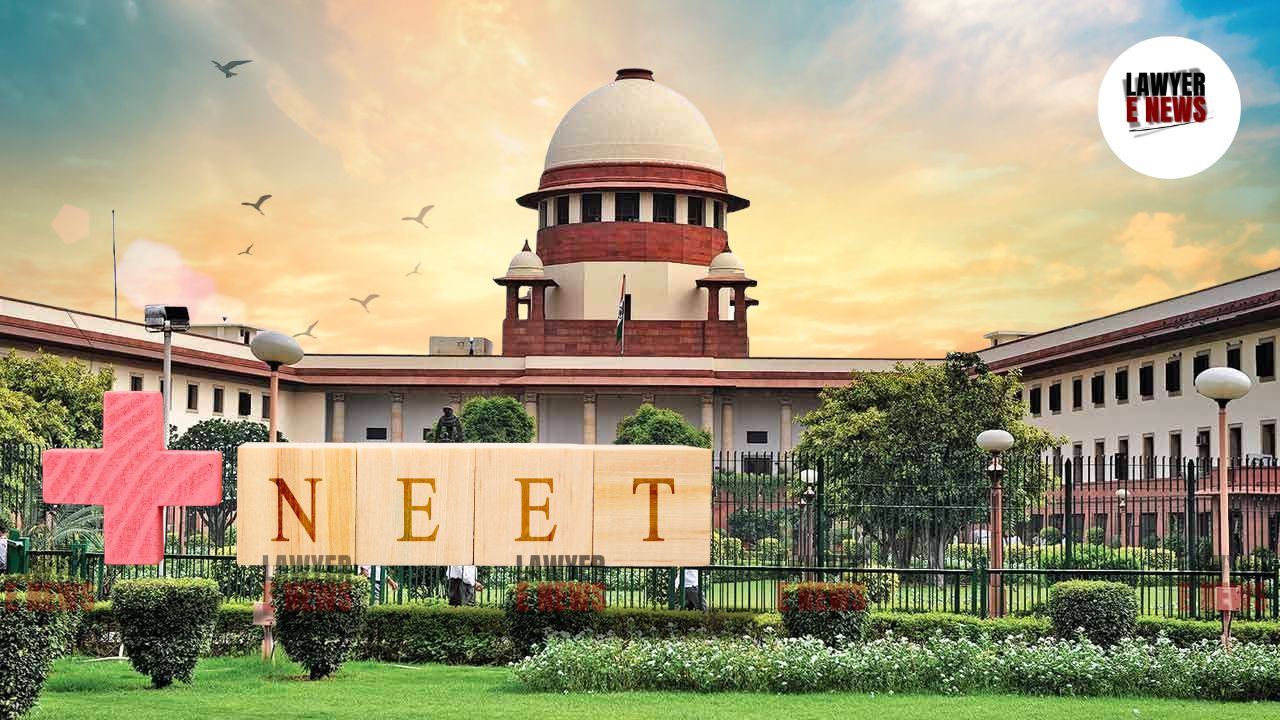-
by sayum
14 February 2026 2:22 PM



The Supreme Court of India has intervened in a NEET (National Eligibility cum Entrance Test) admission case, where a candidate was disqualified due to a speech and language disability exceeding the 40% threshold stipulated by current regulations. The Court, led by Justices B.R. Gavai and K.V. Viswanathan, has ordered a re-evaluation of the candidate by an independent Medical Board to determine if the disability impairs the candidate’s ability to pursue an MBBS degree.
The petitioner, Omkar, was denied admission to the MBBS program based on a medical certificate indicating a 44% speech and language disability. Under the existing regulations, candidates with over 40% such disability are considered ineligible for admission to medical courses. Omkar challenged this decision, seeking a judicial review on the grounds that the blanket application of the disability percentage could unjustly disqualify capable candidates.
The Supreme Court critically examined the applicability of the 40% disability criterion in educational admissions. It noted that a previous case, involving a candidate with 55% speech and language impairment, had resulted in the appointment of an independent Medical Board to assess the candidate's suitability for pursuing an MBBS degree. Drawing parallels, the Court emphasized that a similar approach should be applied in Omkar's case.
The Court directed the Dean of Byramjee Jeejeebhoy Government Medical College (BJGMC), Pune, to constitute a Medical Board comprising specialists in speech and language impairments. The Board is tasked with determining whether Omkar’s disability would hinder his ability to complete the MBBS course. Notably, the Court instructed the Medical Board to conduct this assessment without being influenced by the regulation that disqualifies candidates with disabilities above 40%.
The bench stated, "The petitioner's ineligibility was determined solely on the percentage of disability, which may not fully reflect his capability to undertake medical education. A thorough and specialized evaluation is necessary to ensure that no deserving candidate is deprived of the opportunity based on a rigid interpretation of disability norms."
This Supreme Court order highlights a crucial examination of the rigid application of disability regulations in educational admissions. By mandating a specialized medical assessment, the Court aims to ensure that candidates like Omkar are given a fair chance to pursue their aspirations in the medical field. The outcome of this re-evaluation could potentially influence the future of disability criteria in professional course admissions.
Date of Decision: September 2, 2024
Omkar vs. The Union of India & Ors.
